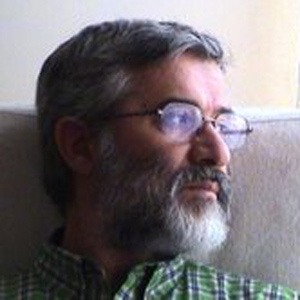Postponing Democracy
By Mir Mahmoud Mousavi, Iran’s Former Ambassador to Pakistan

On Saturday afternoon 3rd of November the state TV of Pakistan released the news on announcement of state of emergency. Gen. Musharraf, military president of Pakistan had claimed the decision is for preventing Pakistan from moving towards suicide and because of country’s plunging into crisis due to armed violence and Judiciary’s disobedience.
Of course Pakistan’s atmosphere was not so calm beforehand. In fact, for several months this Muslim neighbor has been awaiting crises that can be worrisome for both Pakistan and the region. Since 1999 the Army, led by Gen. Musharraf has seized control of the country with a coup.
This year, with the end of the term his presidency and also Pakistan’s parliament, a part of the authority was supposed to be ceded to non-military figures, in the name of democracy. Though superficially easy, in fact transferring power or even a part of it is such a complicated process in less developed countries, followed by controversies and clashes.
Last month’s poll in national, senate and provincial parliaments resulted in Musharraf’s presidency for another term. But a significant point mentioned by lawyers and opponents postponed final announcement of the results.
The question was that is nomination of a military figure for presidential elections legal or not? Since there was no precedent of this case in Pakistan’s political history, judgment was conferred to the Supreme Court. Prolongation of the case for one month was a sign that the Supreme Court would be probably giving a negative answer to the question, which meant the elections were going to be invalidated.
After this conclusion which was not officially announced Musharraf would have limited options. He was whether to accept the court’s verdict and withdraw from the elections and presidency or take off his military uniform and re-enter the elections. The latter didn’t have a guaranteed result for Mr. Musharraf’s due to Bhutto’s return and political alignments inside the country. In other words, with the promulgation of court’s verdict he had no chance to stay in power. Therefore the better way for Musharraf to keep the power was the recent decision, announcing a state of emergency.
Due to the state of emergency Musharraf has taken two other important measures to reduce the threats in the following critical days. First, he has limited and taken under control the media as much as possible to manage information and news circulation and obliterate the possibility of mobilization and public movements by rival groups. Second, by reshuffling the Supreme Court he has quelled the probable (or even definite) confrontation of Judiciary against himself. The recent months witnessed a huge gap between the Supreme Court, especially its head Mr. Iftikhar Chaudary and Gen, Musharraf.
Surely Chaudary and his companions would oppose announcement of state of emergency and they proved that. According to news only 5 members of the Supreme Court submitted to General Musharraf’s demand to sign the state of emergency decree and 7 other members along with Iftikhar Chaudary have been dismissed or detained for their resistance.
In an interview on Sunday Mr. Shaukat Aziz –Pakistan’s PM- stated that Parliaments’ elections may be postponed for one year. But after the American and British officials expressed their displeasure with this delay and demanded for running the elections based on the previously announced plan, Musharraf’s new stance to hold the elections on time was announced by Prime Minister and Prosecutor General. The date se for elections is 25th of January 2008. But contradictory statements of Pakistani officials in the current shaky status can’t be considered as their final decision and opinion.
However, there’s a possibility that the country’s situation becomes worse. Musharraf’s recent move along with his military and limiting measures will aggravate society’s negative feelings towards him and create an opportunity for his opponents.
Currently Pakistan’s government depends on the army and the political order of the government is at its lowest level. From another point of view we must know to what extent Pakistan’s Army, the only remaining institute of the country will accompany Musharraf. The current alliance between Military forces and Musharraf is not secured forever. Internal forces and foreign powers’ contact with the army and a nosedive in security and internal conditions may bring forward other scenarios for Pakistan.
Currently pro-democracy parties and groups are analyzing the country’s conditions. Definitely unrest riot can’t be a goal for a political party and Pakistani parties are no exception.

